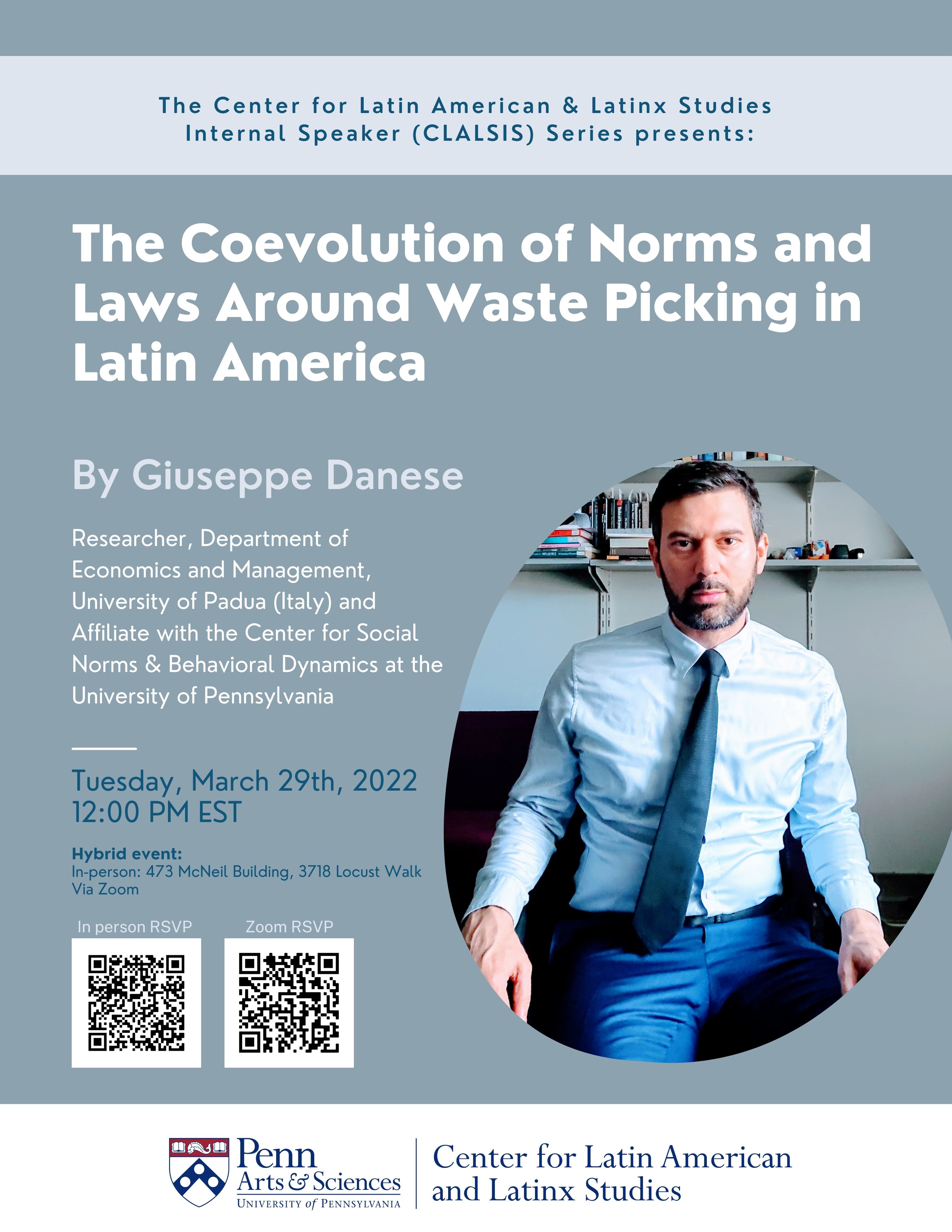CLALSIS
Tuesday, March 29, 2022 - 12:00pm

Speaker: Giuseppe Danese, Researcher, Department of Economics and Management, University of Padua (Italy) and Affiliate with the Center for Social Norms & Behavioral Dynamics at the University of Pennsylvania.
His current work is on the role of social norms in organizations and the interplay of formal and informal institutions in the Global South.
His current work is on the role of social norms in organizations and the interplay of formal and informal institutions in the Global South.
Abstract:
We question two familiar accounts of the relation between formal and informal institutions. In the first, social norms and informal sanctions are taken as exogenous features of the institutional environment, and laws and regulations become the crucial control variables for behavior change. In the second, laws and formal sanctions are taken as constraints, and interventions are devised to influence social expectations affecting behavior. We argue in favor of a coevolution model of formal and informal institutions and illustrate this process with the help of the experience of waste pickers in Latin America. The quality of life of waste pickers is negatively affected by formal regulations aiming to hinder access to waste; and the hostile perceptions of the local communities. In an example of coevolution, the success of titling regulations depends on the perceptions of local communities, and negative perceptions depend on formal entitlements to waste, in the absence of which stereotypes perdure according to which waste pickers appropriate materials they are not lawfully entitled to. We recommend a two-pronged strategy: recognizing formal rights to access for the pickers and depowering informal sanctions imposed on this population, such as the stigma attached to working with waste materials, by stressing the contribution of waste pickers to the circular economy.
We question two familiar accounts of the relation between formal and informal institutions. In the first, social norms and informal sanctions are taken as exogenous features of the institutional environment, and laws and regulations become the crucial control variables for behavior change. In the second, laws and formal sanctions are taken as constraints, and interventions are devised to influence social expectations affecting behavior. We argue in favor of a coevolution model of formal and informal institutions and illustrate this process with the help of the experience of waste pickers in Latin America. The quality of life of waste pickers is negatively affected by formal regulations aiming to hinder access to waste; and the hostile perceptions of the local communities. In an example of coevolution, the success of titling regulations depends on the perceptions of local communities, and negative perceptions depend on formal entitlements to waste, in the absence of which stereotypes perdure according to which waste pickers appropriate materials they are not lawfully entitled to. We recommend a two-pronged strategy: recognizing formal rights to access for the pickers and depowering informal sanctions imposed on this population, such as the stigma attached to working with waste materials, by stressing the contribution of waste pickers to the circular economy.
For more information about him, visit his webpage.

 Center for Latin American and Latinx Studies
Center for Latin American and Latinx Studies